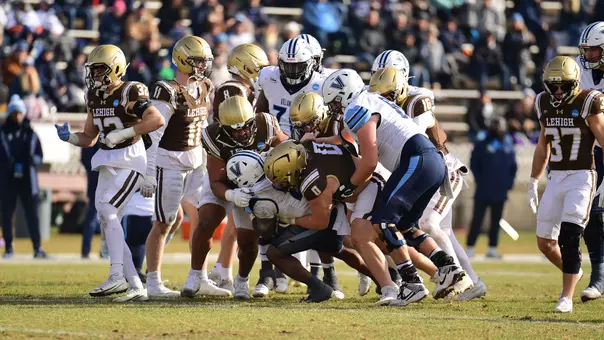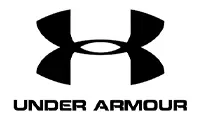FAQ about the change in policy for football financial aid
2/17/2012 1:14:00 PM | Football
FAQ about the change in policy for football financial aid
Why did the Patriot League adopt this change?
The primary reasons are to stabilize the league and aid in recruitment. The Patriot League brings together schools that share a common mission and values, especially as they relate to student-athletes. The new policy allows Lehigh to maintain our core values while strengthening our ability to recruit the kind of student-athletes we seek. Currently, football recruits—students who excel academically as well as athletically—must demonstrate a financial need for aid. The new policy, which takes effect with students entering in the Fall of 2013, provides far more flexibility in recruitment. It states that the total amount of athletically related aid to football prospects in an entering class may not exceed 15 equivalencies (15 x the total cost of attendance); 30 equivalencies in two years; and 60 equivalencies over four years.
The Patriot League had already implemented the option of offering merit athletic awards for all 22 other league sports, including men's and women's basketball. The new policy makes football consistent with the rest.
Why now?
There is currently a lot of flux in athletic leagues across the nation. Small leagues are vulnerable to being raided and they have challenges filling their schedule. The prohibition against offering merit athletic awards not only hampered recruitment efforts, but also stood as an impediment to scheduling contests against schools of our caliber. It also limited the possibility of potentially expanding membership with institutions that share the Patriot League's mission and values. The football league currently has only six title-eligible members. Fordham, starting in 2010, began extending merit athletic awards. It remains in the Patriot League, but has been ineligible to compete for the championship.
Will this take money away from non-athlete students?
No. The new policy will be implemented within Lehigh's existing budget. The pool of money available to recruit football players remains the same. The primary difference is that the money will no longer have to be allocated strictly on the basis of demonstrated financial need. We will not spend more than we otherwise would have spent and we will recruit a defined number of athletes in each class (determined mutually between admissions and athletics based upon historical recruiting results.) In addition, the new financial aid program is only open to entering student-athletes, and is not available to currently enrolled students.
Will this in any way affect academic admissions standards?
No. Admissions criteria remain in place and are not affected by this new policy. In fact, expectations are that academic quality will be sustained if not improved, the costs of the recruitment effort will be reduced through a higher yield rate, and football student-athlete retention through to graduation will improve. Lehigh already successfully employs this system of athletic merit aid for men's and women's basketball.
Will the change necessitate an increase in the financial aid budget?
No. The expectation at Lehigh is that this program will not produce an incremental increase in the amount of spending on financial aid.
Is the new policy for Patriot League football similar to the current practice at Ivy League institutions? Is it different in some significant way?
There are significant differences between the new Patriot League policy and the way the Ivy League operates, but the bottom line is that the policy change will enable Patriot League schools to compete for recruits more like the Ivy League schools. Whether individual schools choose to do so or not is their decision. Financial aid at Ivy League schools is still considered “need based,” but the standards they apply are very different than those employed by Lehigh and other Patriot League schools. In the Ivy League, the financial aid for a student-athlete who comes from a family that earns between $90,000 and $180,000 annually is now calculated as 90 percent of the cost of attendance. (For those with family incomes of less than $90,000, the aid covers the full cost of attendance.) At Lehigh and at most other Patriot League schools, our need calculations for a family earning $90,000-$180,000 a year would require an expected family contribution of far more than 10 percent of the costs to attend the university. So under the need-limited policy, Lehigh had lost the ability to realistically recruit and yield from that "pool" of prospects, which is the largest segment of our potential pool of qualified candidates.
Will the policy change result in Lehigh finding it more difficult to satisfy Title IX requirements?
Lehigh already commits substantial funding to women's sports, so this will be a very manageable obligation to fulfill. We will have to count the dollars for merit athletic awards and ensure that the awards are proportional. And we will need to increase the number of merit athletic awards for women a bit, but we can do so within our existing financial aid budget.
Lehigh Sports Central: Football
Tuesday, December 02
MHT EP6 - Football
Thursday, November 20
Brown & Flight - Episode 4
Friday, November 14
Football Blitz
Friday, October 31













